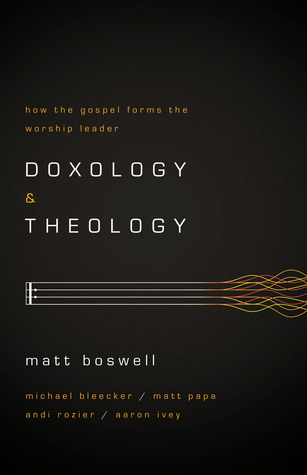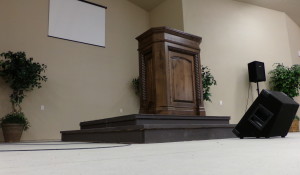Last night (4/12/16) was the first gathering and discussion we (John, Steve, Bradley and myself) had on Boswell’s book, Doxology and Theology.
It was our original plan to meet at a local coffee house and have the discussion with a cup of coffee (hot chocolate for me). But the coffee house we went to closes at 7pm so we took our hot drinks to the church house and discussed the chapter there. It was a great discussion and a good start to what appears to be a beneficial book to read.
Chapter 1, Doxology, Theology, and the Mission of God by Matt Boswell
I couldn’t agree more with Boswell on the statement he makes that “Theology is not intended for the elite, but for all of God’s people.” All of God’s people are not only able to know God but are invited and arguably commanded to know God ourselves. I make this argument to Eastside Baptist often that they are theologians.
We spent a good bit of time talking about how music in our worship service is an influential component of the gathering. It is critical in telling the story of what we (the gathered church) believes about God. Often the idea is hammered in chapter on that what we practice in our journey with the Lord is shaped by what we believe about God and the only safe place to know about God is from the aid of Scripture. Our music must be shaped from what the Bible teaches not on what music we like.
The chief end of theology is doxology (p. 12). All churches have a formula that dictates the way we praise God (that is what doxology is.) If this formula is not driven by biblical theology then we are in danger of idolatry. This is Boswell’s argument that it is “vital for worship leaders to have a robust and growing theology” and that “apart from the revelation of God, worship [of God] does not exist.” Something happens, worship of something happens, but worship of God can not happen unless it is in light of the revelation of who God is.
Chapter one was examined in the framework of Psalm 96. Boswell identifies five marks of the worship of the church from this passage, related to 1 Chronicles 16,
It was good to hear John, Steve, and Bradley express their thoughts on these five marks. They are not only friends, they are careful with their words.
1. the worship of the church is God-centered
The men I’m reading this book with understand that this is a must. If it is not God-centered then we are making worship about ourselves. We agree with the author that God-centered worship requires that all songs must be biblical. God centered worship involves a people who “sing to the Lord” (Psalm 96). The only kind of singing that glorifies God when the Lord’s people are gathered together for worship are songs that glorify God and are theologically driven from the Bible. The singing is “not meant to be entertainment or a distraction from God.” (p. 8)
Boswell makes a strong argument that worship leaders (all who are leading the gathered people during a worship service) are actively making disciples of those present. I wish I had had this truth present on my thinking years ago. The song leader is not mindlessly selecting songs (he may be) but he is actually teaching or making disciples by the songs he selects. The songs are an expression of the gathered people of what they think and believe about God. WOW! That is very important.
We discussed what the apostle means when he says we are to “sing psalms, hymns and spiritual songs” (Eph. 5:19; Col. 3:16) and what it means to “sing a new song” (Psalm 96:1). “Our song is a song of salvation. As the people of God we are meant to be continually writing new songs that confess the tenants of our faith in fresh, creative, and meaningful ways. However, tne songs are not an end in themselves. The “new song” we sing is informed by the “old song,” and looks with anticipation toward the new song we will sing in heaven (Rev.5:8-10). (p. 9-10)
New is not new just because it is new, it is new because it is shaped by the bible and maybe because it is unlike our old nature. It is not the gather people declaring new things never said about God. It is saying things about God that God has told us and unlike any idea of God we could ever come up with independent from the influence of Scripture by the inspiration of the Holy Spirit.
2. the worship of the church is biblically formed
“Worship leaders ought to come to lead the people of God with a guitar in one hand, and a Bible in the other, and know how to use each weapon well. We are a people formed by the word of God, and it is His Word that calls us to worship.” (p. 10)
We all laughed at this because we all play guitar. From expert to not so expert. From the skill of Steve all the way to the other end of myself. But a truer statement for us tonight could not be more profound. If all is done in the worship of God is with a music instrument and no theology then what is being done is no more than what is done on any night of the week in any other place in town. the Bible must form our worship if what is going to take place is worship of God.
3. the worship of the church is gospel-wrought
A way to God is impossible without theology. Idolatry is always on the verge of derailing the Lord’s people. The gospel is at stake! The songs that are sung by the Lord’s people is the sound of redemption, it is the sound of salvation.
We were all in agreement with Boswell that “it is vital for worship leaders to have a robust and growing theology. Apart from the revelation of God, worship does not exist.” (p. 13)
The music of the Lord’s people gathered together must be “infused with Scripture” – “gospel soaked” (p. 13) if it is to be powerful.
There is a songs that many churches sing, ours included, that need a phrase or two changed to tighten up the theology. We did not talk about this last night, but my reflection on it this afternoon has reminded me of a song with the phrase “you ask me how I know He lives, He lives within my heart.” I get what this phrase is saying but it is weak theology. It is more informed by emotion than theology. This phrase give the authority of Christ being alive based upon my feeling that He is alive in my heart so that’s all that is needed. This fails the theology test in my opinion. I have friends of other faiths (Mormon in particular) who will say they know their Jesus or the God they worship is real because they feel it in their souls. Who’s emotional authority is superior? To the Bible, Christian, to the Bible. For me, all that needs to happen is tighten up the theology of the song and it clears up the authority. “You ask me how I know He lives, the Bible tells me so.”
4. the worship of the church is congregational
“We have to be more intentional about making worship congregational.” (p. 17)
“We don’t gather on Sundays to see pageantry performed. We gather to worship as a people who have been redeemed by the power of the cross. The primary function of the church singing is the church singing together.” (p.17)
I was encouraged by this and thankful for the understanding that the men who lead in this part of the gathering on a weekly basis agree. This has been a change that has been made at Eastside over the past several years. Rarely is a solo, “special” music, the norm of our gatherings. There are times a solo is done, but it is so rare that it can actually be called “special”. A special occasion or seasonal event may better serve the congregation with a solo, but not the norm and can’t be considered “congregational”.
Congregational singing is a spectacular element of the weekly gathering. It is of such a nature that it requires it be theological first. It is the moment when the congregation is saying the same thing about God at the same time. I enjoy the sound of the redeemed singing theologically sound declarations.
5. the worship of the church is missional
I’ll refrain from my opinion about the word missional. It is used many times without much clarification of what it means. I do think Boswell did a good job giving clarification that “our goal with all of this is that God would be glorified in the worship of every nation, tribe, and tongue. While worship is God-centered, it is also declarative.” (p. 18)
My conclusion of chapter one is summed up on page 21; “Our position before God is secured in what Christ has done for us, not in the ministry we do for Him. The more we allow the truths of the gospel to form our identity, the more apt we will be to serve without fear or the tendency to perform.”
I was encouraged by the things articulated in chapter one and encouraged that there is a mutual desire of those that lead in this duty at Eastside agree that God shapes this gathering and not us. These men understand that the power to attract people to God is not our duty; it is our duty to obey God who has revealed Himself to us through the Holy Bible. God has the authority to direct us in how to properly worship Him.
May the Lord be glorified and His people pleased to worship Him as he instructs us to do so.
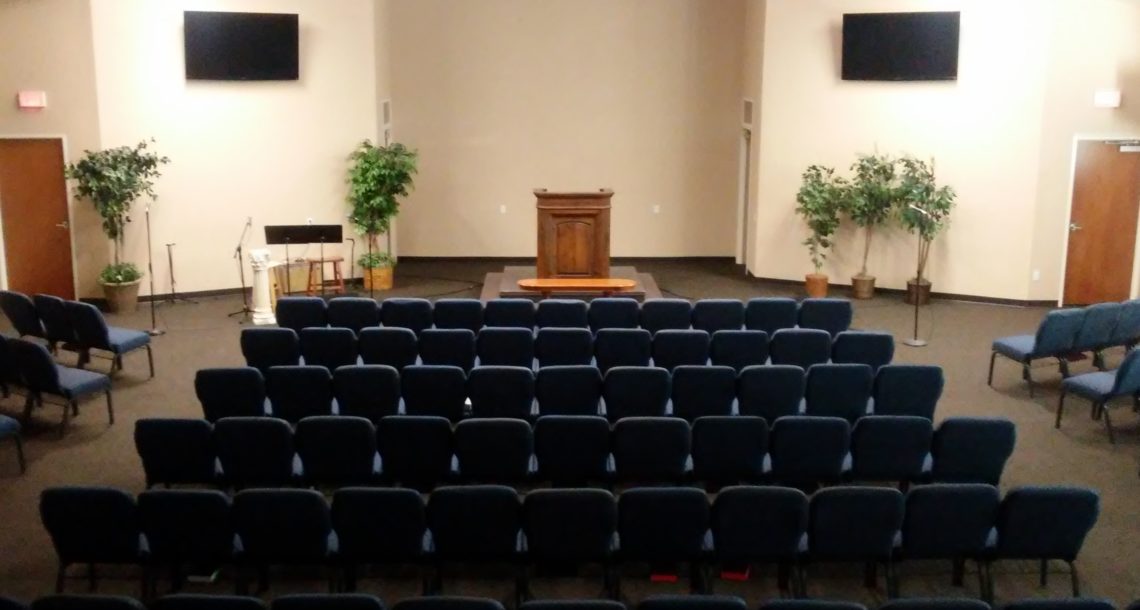
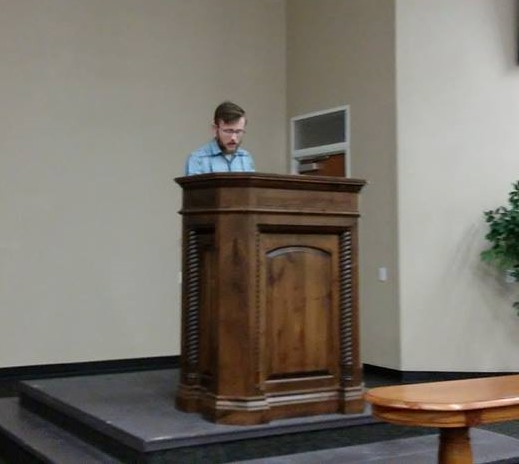
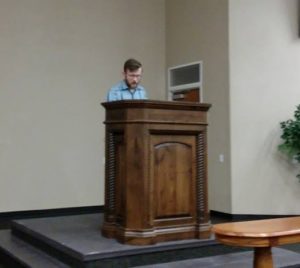 Lord’s Day Evening, March 5, 2017 at Eastside Baptist Church in Twin Falls, Idaho. Bradley Kinch preaching from Ephesians 2:14-22
Lord’s Day Evening, March 5, 2017 at Eastside Baptist Church in Twin Falls, Idaho. Bradley Kinch preaching from Ephesians 2:14-22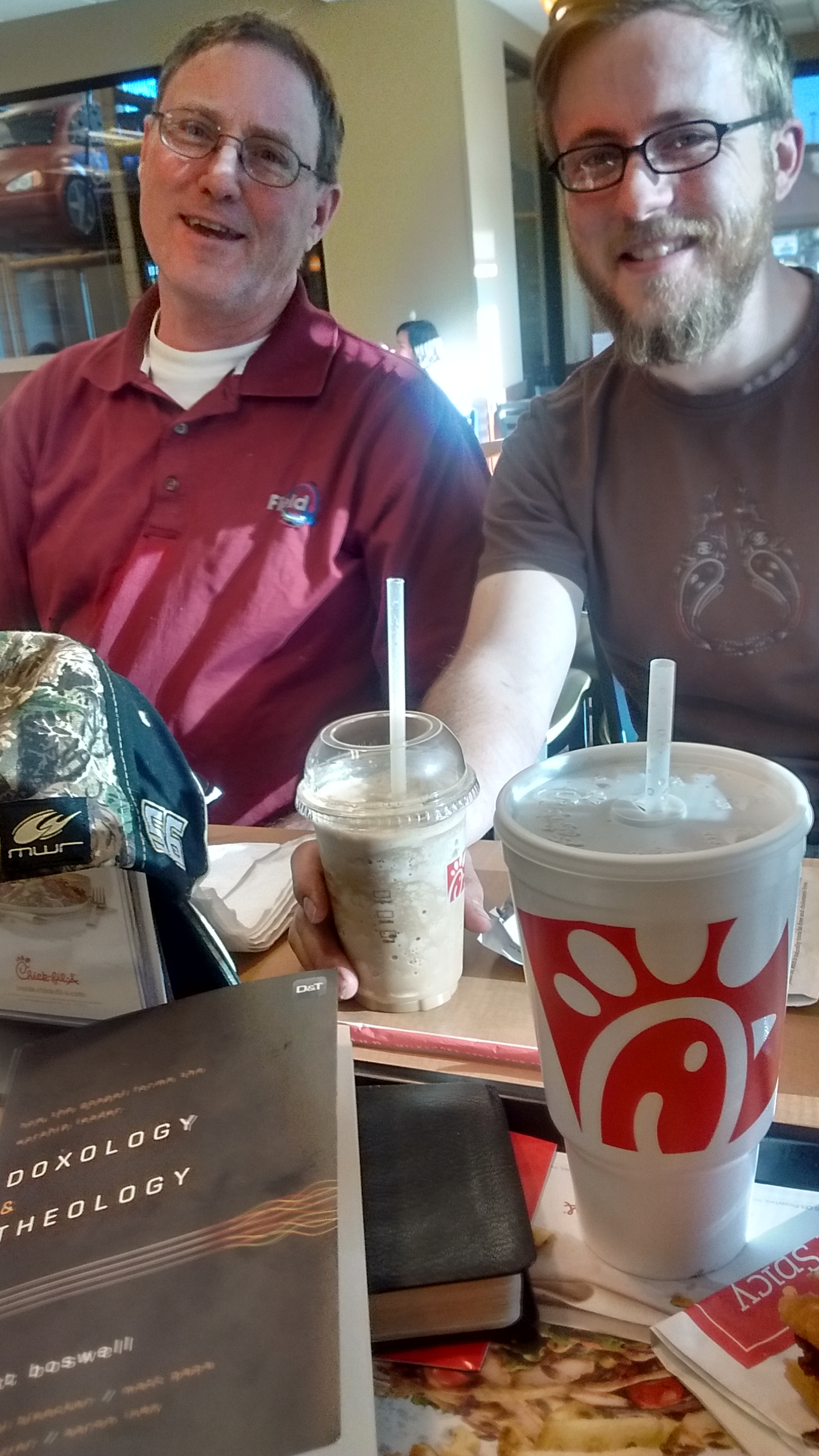
 Last night (4/19/16) I met up with John Martinez, Steve McMullin and Bradley Kinch again to process through and think about the whole of the worship gathering of the Lord’s people and what is required of those who lead out in the gathering. We gathered at one of my favorite places in town, Chick-fil-A, to enjoy the fellowship of brothers and discuss the important duty we have to God in leading His people to worship Him.
Last night (4/19/16) I met up with John Martinez, Steve McMullin and Bradley Kinch again to process through and think about the whole of the worship gathering of the Lord’s people and what is required of those who lead out in the gathering. We gathered at one of my favorite places in town, Chick-fil-A, to enjoy the fellowship of brothers and discuss the important duty we have to God in leading His people to worship Him.